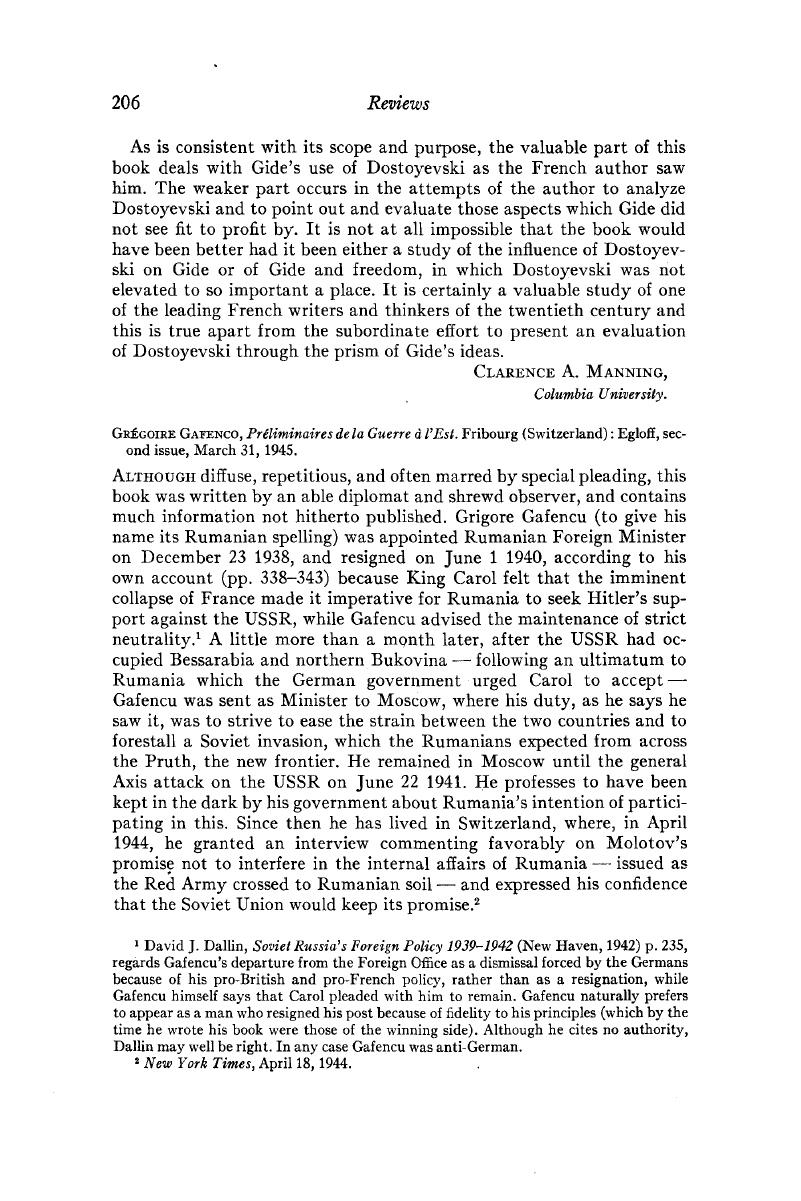No CrossRef data available.
Published online by Cambridge University Press: 07 August 2018

1 Dallin, David J., Soviet Russia's Foreign Policy 1939-1942 (New Haven, 1942) p. 235 Google Scholar, regards Gafencu's departure from the Foreign Office as a dismissal forced by the Germans because of his pro-British and pro-French policy, rather than as a resignation, while Gafencu himself says that Carol pleaded with him to remain. Gafencu naturally prefers to appear as a man who resigned his post because of fidelity to his principles (which by the time he wrote his book were those of the winning side). Although he cites no authority, Dallin may well be right. In any case Gafencu was anti-German.
2 New York Times, April 18, 1944.
3 Dallin, Contrast, op. cit., p. 264.Google Scholar
4 Cf. Dallin, , op. cit., p. 268 Google Scholar, and 269: “The work of the Bucharest Commission (sic) was carried on behind closed doors, and few of its decisions reached tie outside world.”
5 Dallin, Contrast, op. cit., p. 346.Google Scholar Gafencu's version of Stalin's remarks seems far more plausible.
6 New York Times, April 17, 1946.